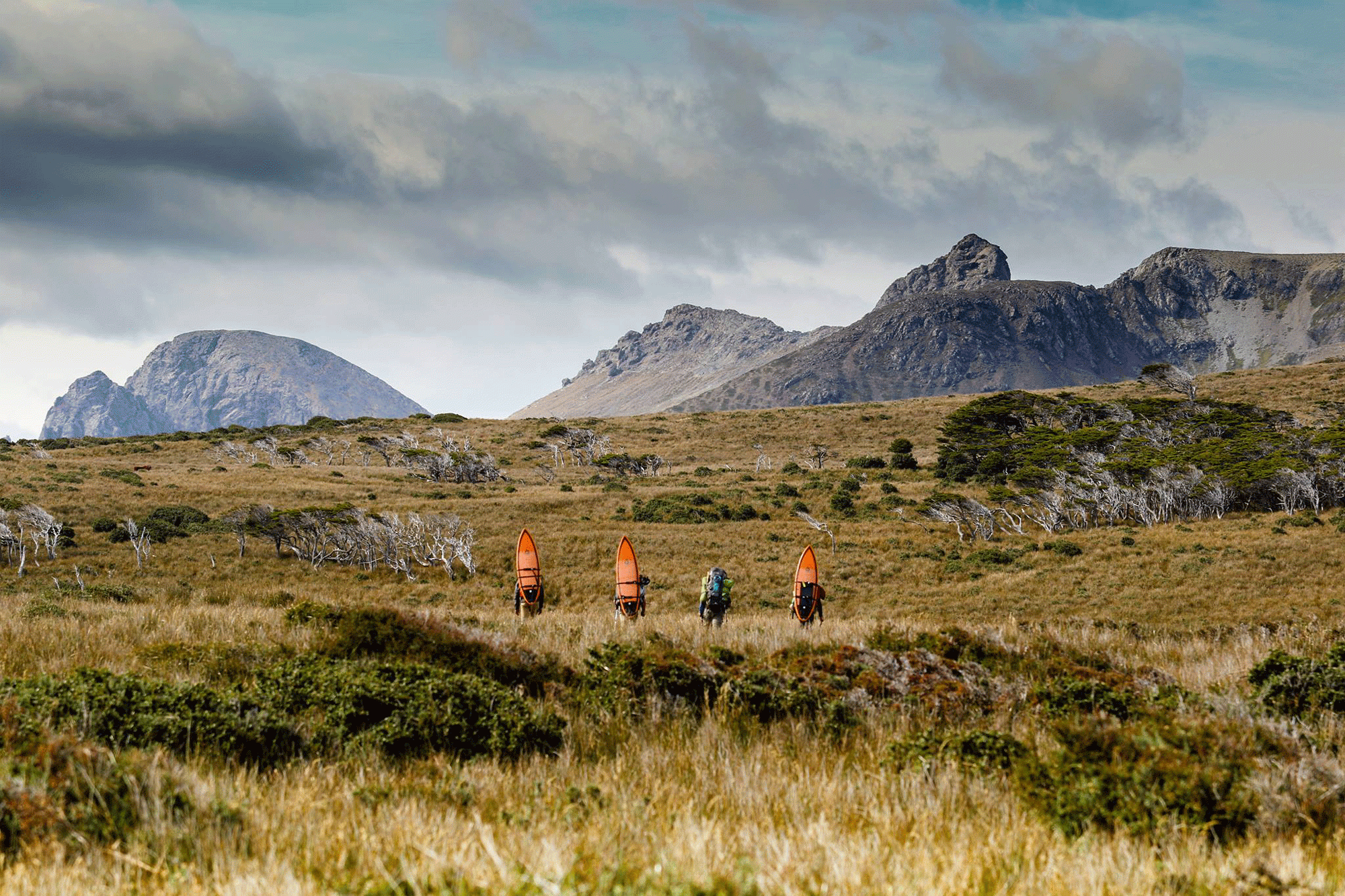In 2010, Argentine brothers and surfers Julián and Joaquín Azulay were in Los Angeles, California, during a trip to visit their older brother. In their free time, Julián, then 24, and Joaquín, then 22, explored southern California and surfed in the Pacific Ocean at every opportunity.
When it was time to return to Argentina, rather than fly, the brothers toyed with the idea of taking the long way home—driving from Los Angeles to Buenos Aires. With more than 18,000 miles of open road and surfable coastline along most of the route, Julián and Joaquín cancelled their flights; bought a car, GoPro and point-and-shoot camera; and hit the highway with few plans in place. Over the next 13 months, they took each day as it came, not knowing where the adventure would lead—and certainly not knowing it would alter their careers and thus their lives.
Through the bicontinental road trip, the brothers accidentally yet intentionally fell into a career in surf expeditions and documentary filmmaking. Over the past nine years, they’ve ridden the highs and lows that come with creating one’s dream job and life.
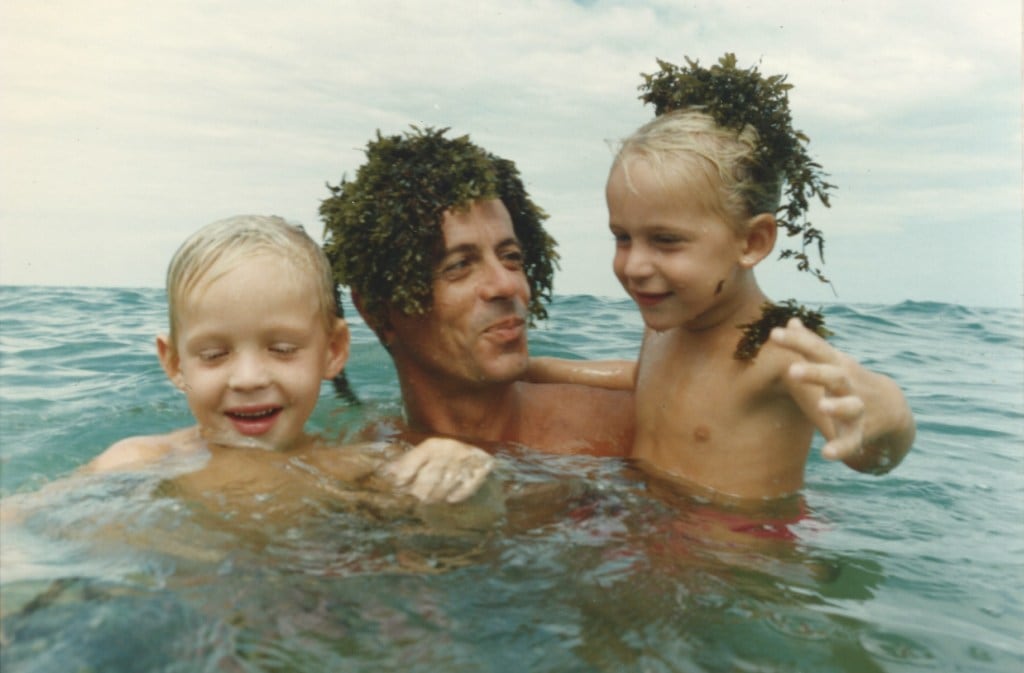
The brothers’ first days on a surfboard in January 1994.
Julián, 33, and Joaquín, 31, grew up in Buenos Aires, Argentina, where the closest surfable waves were roughly 250 miles away in Mar del Plata, a town on the Atlantic. Throughout the brothers’ childhood, the Azulay family frequented Mar del Plata as well as the coast in Brazil.
“We almost always spent January and February [summer in the Southern Hemisphere] in Brazil,” Joaquín recalls. “During the summer, we were always at the beach. The rest of the year, we were at school in the city, far from the ocean.”
Julián says, “When you are born with the ocean in front of your house, you tend to take it for granted. When something is farther away and it takes you more to get there, you tend to value it more.”
In many ways, surfing is in Julián and Joaquín’s DNA. Their father, Jorge, has also always loved the ocean. Ever since he was a little boy, Jorge recalls being fascinated with the sea. In 1963, when he was 20, he saw a newspaper article about Australian Peter Troy surfing a fiberglass board in Brazil. When Troy traveled to Argentina to give a talk, Jorge and a friend went to see him and were inspired to pick up the sport.
“My friend and I started making a surfboard together, and that’s where everything started,” Jorge says. “We didn’t know anything about the sport at that time, and we didn’t know how to stop.”
From that moment on, Jorge and his friends became surf pioneers in Argentina. Julián and Joaquín’s mother, Carola, also surfs.
Of Julián and Joaquín’s childhood, Carola says, “During their short vacations [from school], we always went to different places where there were waves. So they were getting to know different countries and growing their passion for surfing.”
Julián agrees: For their family, surfing is one thing they all share. “Being in the water for us is always like a place of total disconnection and at the same time a place of connection with nature and with oneself. It’s a moment to be calm,” he says.
In July 2010, Julián and Joaquín’s love for the ocean and passion for surfing took them on that spur-of-the-moment 13-month and 13-country road trip from Los Angeles to Buenos Aires. In Baja California, a friend dubbed the brothers “Gauchos del Mar,” which translates to “Cowboys of the Sea,” and the name stuck.
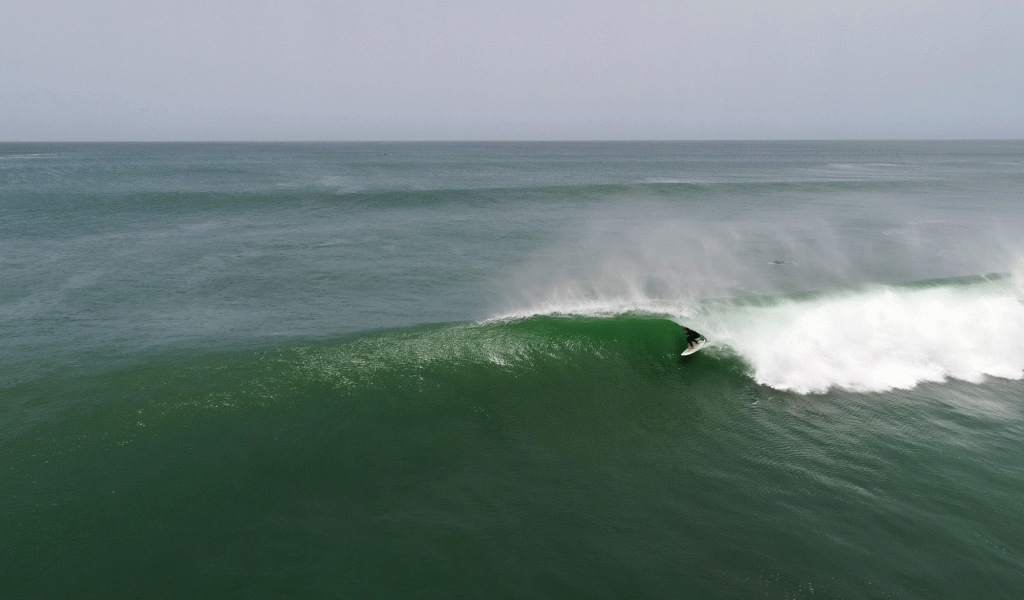
Julián finds some shade along a West African reef.
“For us, it was a success to leave our comfort zone and chase a dream,” Joaquín says. “In that moment, there was a dream and nothing more than that.”
Along the way, in addition to camping in remote areas and surfing perfect waves, the brothers came to experience and know the Americas through diverse people, towns, cultures, food, plants, animals and landscapes.
Though the trip felt like a dream, it wasn’t always easy.
“On the road, once everything was gone, it was a challenge to finance our trip while we were traveling,” Joaquín says. “We sold photos and videos to surfers. We cleaned hulls of boats and painted their walls in the Galápagos. We had to leave our comfort zone and do work that maybe we couldn’t have done before in exchange for food and accommodation. We grew a lot during that time.”
Julián and Joaquín became more socially and environmentally conscious. The trip strengthened their understanding of the lessons their parents had taught them growing up, on respecting others and the environment.
Thirteen months after leaving Los Angeles, the brothers arrived home in Buenos Aires with stories, lessons learned and hours of camera footage.
“We recorded everything that happened to us without having a real goal of making a documentary,” Julián says. “We simply documented our trip because it was something unique.”
Joaquín adds, “At the start, we said, ‘Let’s film this because it will be a personal memory for us, for our children, for our grandchildren. Let’s film it because there will not be another trip like this with two brothers traveling the continent.’”
Back in Buenos Aires, Joaquín finished his degree in business administration at the Universidad de Buenos Aires. During that time, the brothers brought their footage to Alejandro Tomas, a friend with experience in image and sound design. In their spare time, Julián, Joaquín, Tomas and Santiago Bernaldo de Quirós started to cut a documentary from the adventure.
“We didn’t know what we were getting into,” Julián says. “We were taking everything minute by minute and learning as we went along.”
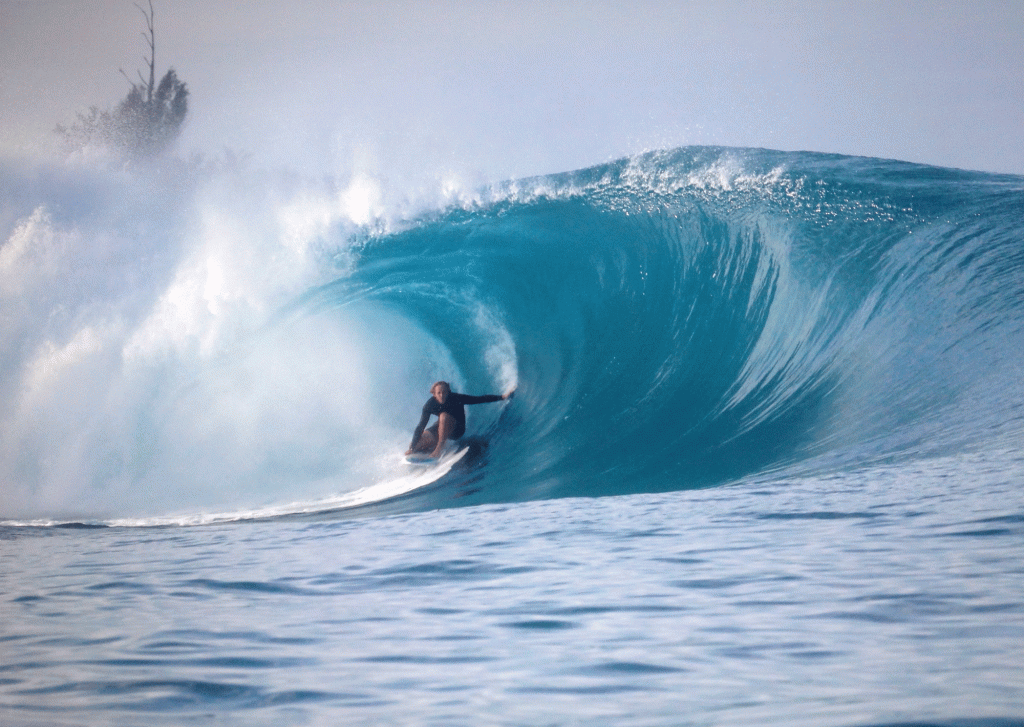
Julián rides a board he shaped himself—and catches some solid barrels.
In 2012, to the surprise and delight of the Azulays, the documentary, titled Gauchos del Mar, was accepted to screen at several film festivals.
“We couldn’t believe they accepted our film,” Joaquín says. “Then it ended up winning nine awards, and we really couldn’t believe it. That really opened our eyes and told us, ‘Here’s a way of life that we like and a story that people are interested in. Why not try to do a second expedition and documentary?’”
The shift to full-time filmmaking was gradual.
“It was a slow process,” Joaquín says. “There wasn’t a single moment, conversation or decision to make this our job. We were fully invested from the start because it’s our passion, but it was really a process of living a lifestyle that led us into these expeditions and films.”
Two years later, in 2014, the Azulays released their second film, Tierra de Patagones, about an expedition through Patagonia. Península Mitre—this author’s favorite—and La Ola Sin Fronteras followed in 2016 and 2019, respectively.
Of their early years, Joaquín says, “For sure there were moments of doubt. It wasn’t easy. It’s even more difficult in Argentina because sponsorships are so little and so difficult. We had to make a plan and work it out. We started talking with brands in the U.S. and Europe. Though it wasn’t easy, it’s for sure the best path ever, showing you can work it out and live from your passion or your dream.”
With every project, they’ve improved their cameras and gear, added more people (only a few) to their team at times, and grown their knowledge, expertise and following. They’ve also cultivated relationships with companies and now have the support of sponsors, including Patagonia, Freelife, Camarón Brujo, Goal Zero, MIZU, REEF, Guayaki and more.
“Julián and Joaquín are two special people—and not because I am their father,” Jorge says. “They are people of integrity. At times, in comparison to other boys their age, I see them more as adults, more mature. Since they were young boys, they’ve addressed life as adults, with strength. For me, this summarizes everything.”
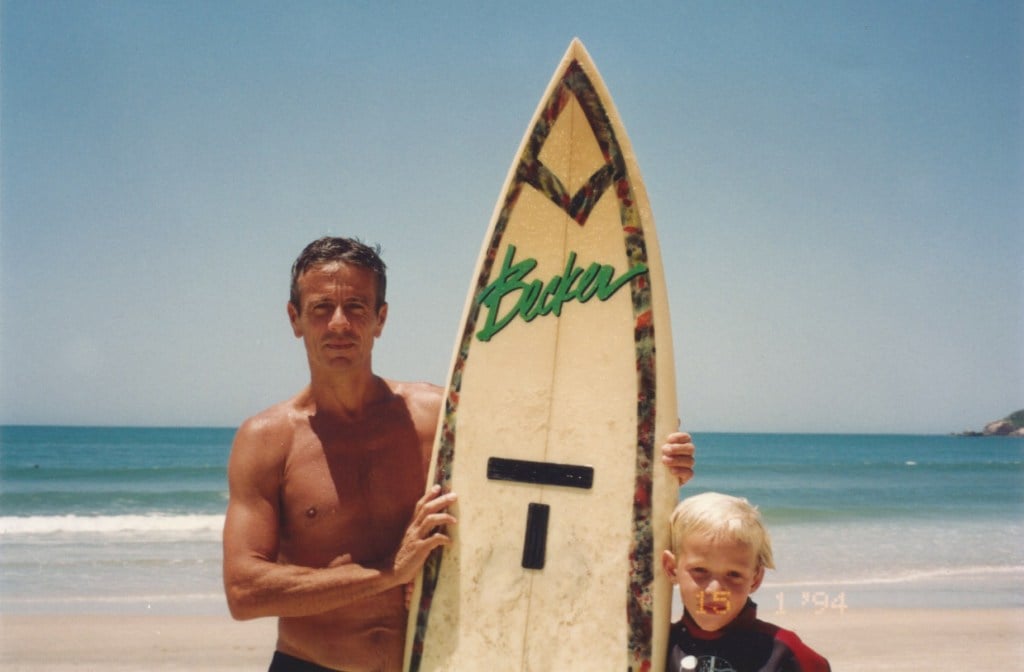
Julián and Joaquín’s father, Jorge, shared his love of the ocean with his sons.
With more recent projects, advocacy has become a key part of the Azulays’ creative expression.
“In traveling, nature started to be really important to us,” Joaquín says. “When you’re living in the outdoors for many days, weeks, months or more than a year in our case, you start to understand it’s really important to protect the outdoors, to conserve our natural spaces, to spread the message and open people’s eyes and minds.”
With Península Mitre, Julián and Joaquín spent 53 days navigating the easternmost tip of Tierra del Fuego on foot, each carrying more than 75 pounds, surfboards included, on their backs. The brothers searched for waves where no one had ever looked for them before and surfed when possible. They met the few locals who inhabit the peninsula, learned the history of the land and came to know its pristine, untouched wilderness. And they learned about the need to protect it for future generations.
“If you don’t know what’s there, it’s very difficult to want to protect it,” Julián says. “So with the film, we decided to promote a message of conversation for the peninsula. It’s helped awaken many people to the importance of conserving it.”
Península Mitre supports the mission of the Asociación Civil de Conservación de Península Mitre, which has been working for more than 15 years to protect the land. The Conservation Land Trust, part of Tompkins Conservation, has also joined the project.
Today, the brothers are in Africa filming a series for a Brazilian television network as well as their own documentary. In 2018, they bought a 1985 Unimog, formerly a German military ambulance, converted it into a home on wheels, and traveled and surfed Africa’s West Coast from Morocco to South Africa. In 2019, they’re doing the same along Africa’s East Coast from South Africa to Kenya.
This time around, the Azulays’ expeditions and stories focus more on the people, places and cultures than the natural environment.
Of her sons’ ability to connect with others, Carola says, “Both Julián and Joaquín have a special gift with people. Wherever they arrive, they’re very respectful, humble and well-received. In that way, they make friends everywhere they go who open their homes and families to them.”
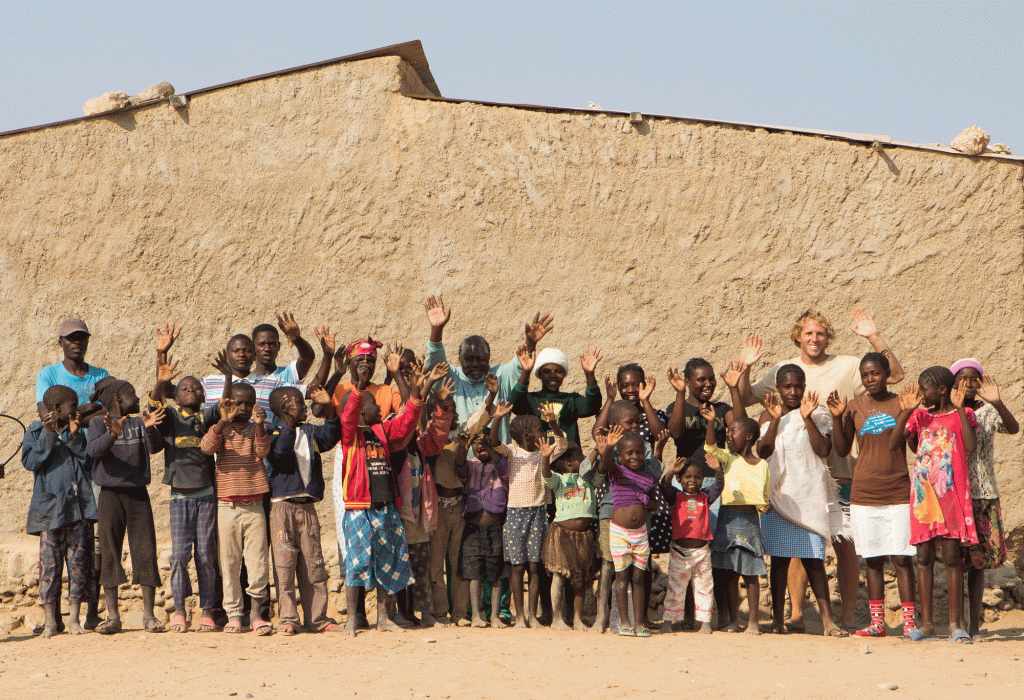
In Angola, the Azulays spent four days with a Mucubal tribe and learned a lot from Chekuteny, the tribe’s chief. The brothers say the members of this tribe are some of the happiest people they’ve met.
“Africa has shown us an unimaginable cultural breadth,” Joaquín says. “If you’re not here, I think you can’t imagine it. You can’t understand how wide, vast or big it is.”
Julián adds, “Something we’ve learned a lot here in Africa is to live in the present, to be happy with what you have today.”
While Julián and Joaquín certainly spend time living in and enjoying the present, a good deal of their expeditions and documentaries comes down to planning.
“It’s a fairly long process,” Julián says. “Depending on where we’re going and what we’re doing, there are a lot of logistics to work through.”
As is the case with any expedition, a healthy mix of planning and flexibility is key. “When we’re traveling, our goal is to be open to what the trip—the people, places, cultures, landscapes—is offering us,” Julián says.
Sometimes, that balance pushes their limits. In Nigeria, for example, the brothers were stuck for 43 days due to a civil war in neighboring Cameroon that closed the borders. “Moments like that take you out of your comfort zone and teach you a lot,” Joaquín says. “A lot of tolerance. A lot of controlling your mentality.”
“It is not easy to live for a long time without the comfort we’re all accustomed to,” Carola says. “Julián and Joaquín are simple and extraordinary. We learn from them every day. I am so proud of them for the intelligence, effort, tenacity and seriousness with which they’ve organized their expeditions and completed them in such a successful way.”
Later this year, back home in Argentina, the Azulays will relive the rewarding and challenging moments of their time in Africa as they edit the television series and documentary.
The contrast between production and post-production is extreme. “We spend almost the entire day at the computer,” Julián says. “We get up early, drink mate [an herbal beverage] and work on the computer [editing] until it gets dark out. Some days, we work for 12 to 15 hours on the computer.”

Mate is a traditional herbal beverage in Argentina. Julián and Joaquín take it everywhere with them, including Namibia, as seen here.
Once the film is complete, Julián and Joaquín will embark on yet another adventure: touring and promoting their work. To date, the brothers have toured their documentaries in Argentina, Canada, Europe, Japan, South Africa and the U.S. Historically, they’ve done everything themselves. Now, they’re starting to delegate different parts of the process and their business to contractors.
While their Africa expedition is still underway, the Azulays know the documentary—likely actually two or three documentaries—will focus on people, place and culture. Throughout 20 countries and counting, the connections made, experiences shared and lessons learned carry similarities and differences.
“Surfing is important to our story in that it’s our motive to reach these distant places,” Julián says. “But in the end, our films connect with people—those who surf and those who don’t—because they convey stories. They tell you something.”
All photos courtesy of the Gauchos del Mar.
Follow Julián and Joaquín’s Africa expedition on Instagram at @gauchosdelmar and on Facebook at facebook.com/gauchosdelmar. Watch their documentaries on Vimeo and on their website. And for more information or to sign the Change.org petition to designate Península Mitre as a marine protected area, click here.
